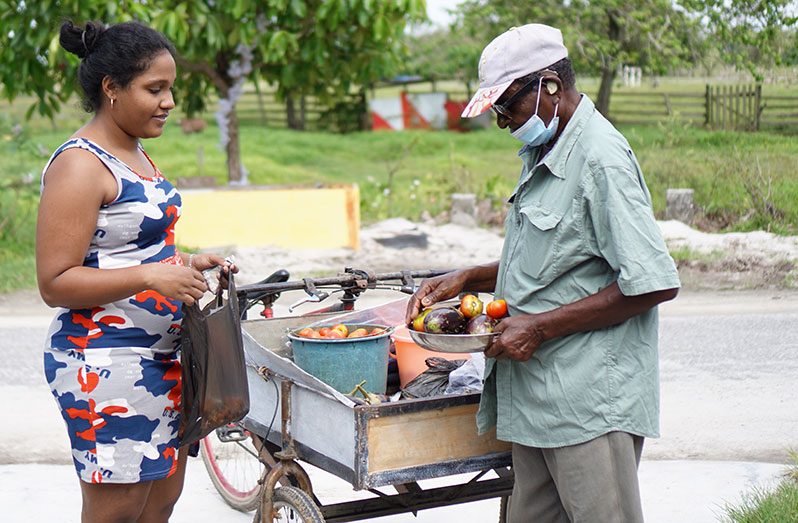– ‘Go-getters’ in their bid to earn
By Michel Outridge
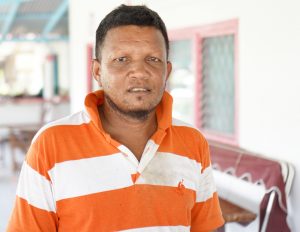
JOSIAH Dias, better known as “Levi” is a speedboat operator/captain at Parika beach and he would transport people to various parts of the Essequibo River, since he is very familiar with the places and people.
He is originally from Liberty Island, one of the 365 islands in the Essequibo River and grew up there, but after he was allocated a plot he relocated to Tuschen, Phase Two after he constructed a house, eight years ago.
The father of four is a very simple and humble man, who was busy doing some cement work in his yard, since he wasn’t doing his speedboat business that day.
Dias told the Pepperpot Magazine that he would pay $15,000 per month to have his speedboat and engine secured at the Parika beach, where it is moored along with more than 100 speedboats.
He has been a speedboat captain for the past 20 years and these days he works on hire and would transport people from Parika beach to Buck Hall, Essequibo River, among other jobs.
Dias disclosed that most people at Buck Hall have their own landing, but the main one used is managed by a resident, who would charge $2000 as a landing fee, even though the facility is not proper and he is of the view that is unfair and not pocket-friendly for speedboat operators.
Village leader
The wife of Josiah Dias is Namrita Dias, she is a member of the Community Development Council (CDC) and it is at their home most meetings are held and she is a village leader, who would make representation for the residents.
She is advocating for better facilities and a better life for all in Tuschen and has been instrumental in getting street lights recently for Phase Two.
Dias does a lot of volunteer work behind the scenes and is regarded as a ‘go-getter’ in the community.
The farmer/greens vendor
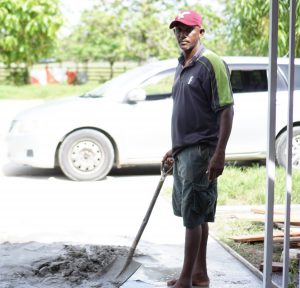
Meanwhile, the Pepperpot Magazine also met another resident, Narine Dookie, an elder in the village.
He is 73 years old, a pensioner, who has a cultivation of vegetables and he would sell it in the village via his bicycle which has a carrier attached to it.
The father of five said he lives with his elderly wife since all the children are grown and left home and it is an income for him because it would supplement his monthly pension to honour bills and other household expenses.
His harvest of boulanger, tomatoes, calaloo, sweet peppers, peppers, ochro, corilla, squash were all reasonably priced unlike market prices because they are perishable and doesn’t want to return home with them.
The housewife
Geeta Bacchus is a housewife and a resident of Phase Two, Tuschen Village, East Bank Essequibo and a mother of four.
Bacchus told the Pepperpot Magazine that her time is taken up with the children, the parrot and six dogs plus household chores and cooking.
She would leave home only when necessary to go shopping for essential supplies or to go to church.
Her husband, a fisherman is away at sea, but the children are at home assisting in the chores and the one that is not working is fed up with being at home.
He is job-seeking while, the others are employed and are school-aged and attending virtual classes online.
Bacchus has been a resident of Tuschen for two and a half years and is originally from Hubu, also on the East Bank Essequibo.
The CDC Vice Chairman
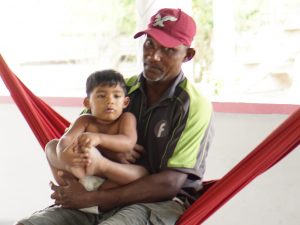
Iqubal Yakub is also a resident of Phase Two, Tuschen and the Vice Chairman of the Community Development Council (CDC).
When the team met him, he was doing some masonry work within the village because he would do such jobs whenever it present itself.
The father of eight stated that he is always looking for work and when he gets any carpentry or masonry work in the village he would do it because jobs aren’t easy to get.
Yakub added that he has been a resident of the village for the past eight years and three months ago they established the CDC to develop the community and since it is new they are in the ‘teething’ stage.
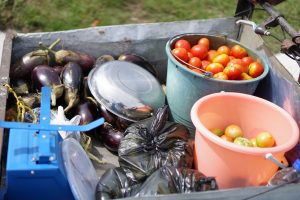
He reported that the community was once neglected with bad roads, no street lights but they are seeing some development now with the upgrading of internal streets, a walkway is being done on the access road and the access road is being upgraded currently.
The 40-year-old stated that the CDC has outlined plans for skills training for youths and women in the village as well, as other empowerment projects.
Yakub pointed out that Tuschen is a very large community in size and population with more than 1000 houses in Phase Two and about 5000 houses in Phase One.




.jpg)






